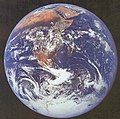Chem321:Discussion 4
WORLD (Chemistry 321) |
| MAIN PAGE |
|---|
| Syllabus — Schedule |
| Welcome page Contact Dr. Walker |
| This week |
| Today's tasks — (tomorrow) |
| Course units 1 - 2 - 3 - 4 - 5 - 6 - 7 8 - 9 - 10 - 11 - 12 - 13 - 14 |
| Moodle site |
|
|
| Course content |
| Assignments Paper - Acme - 1 - 2 - 3 - 4 - 5 |
| Practice problems |
| Discussions |
|
|
| General wiki help |
| Basic editing Create an account Protocols Tutorial Demo, for practice |
This discussion is based on discussing three questions, and it is set to take place on the wiki, over the next few days. You have until midnight on Wednesday, 15th July to post your initial direct answer to each of the questions. Then, by Friday, 17th July, you should post at least two comments in response to (and under) the comments by other students. Be sure to start your text with a *, and sign your responses with four tilde marks at the end.
Laws of conservation of matter and energy
Classical laws of chemistry and thermodynamics tell us that neither mass and energy cannot be destroyed; both are conserved during any physical or chemical process. (Strictly speaking we should use a combination of mass-energy when talking about nuclear reactions, but these are rare on Earth.)
What can we learn from the conservation of mass and conservation of energy when considering global resources of mass and energy?
From the Law of Conservation of mass and energy, we must consider several things when discussing global resources. In order to conserve mass and energy on a global scale, we must implement and use renewable resources that we have on hand. For example, we have seen that wind mills and wind turbines are a great source for creating energy at low cost. It may be costly to make a wind turbine and implement this into a certain location, but it will undoubtedly save money in the long term. Additionally, we must not use more energy than we have have and what we can make. We are expending our resources at a rapid rate, and it is necessary to scale back on a global scale, in order for our resources, land, and capital to last decades and centuries into the future.
Limitations
Science is clearly valuable when studying the environment. What do you perceive as the limitations of science in this context?
Wonder tech
If you had $50 billion to spend on developing some new technology, what would you choose, and how would you spend the money?
